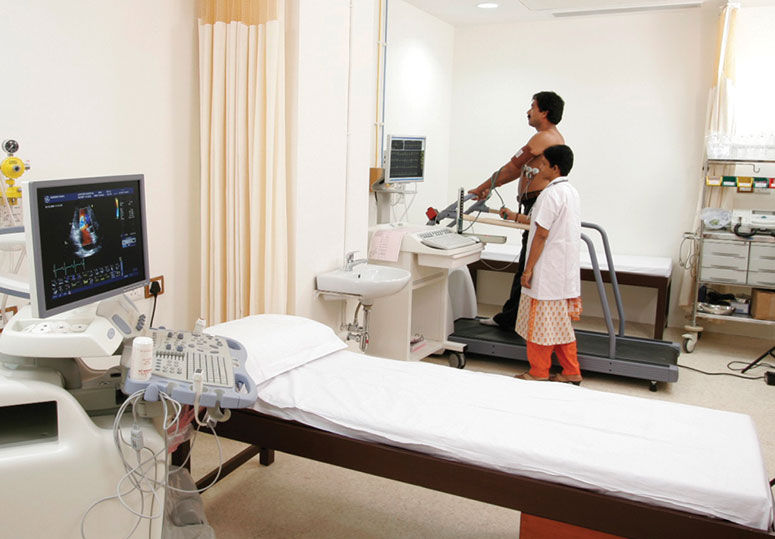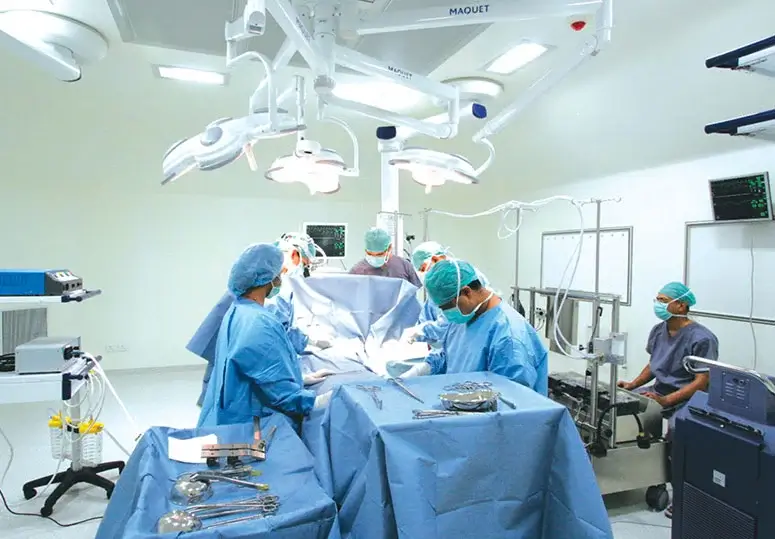Infectious Diseases in Pune
A Multifaceted Approach to Infectious Diseases: Addressing the Challenges of Prevention and Treatment
At our Infectious Diseases Unit in Pune, our foremost priority is the prevention of disease transmission. We are dedicated to providing internationally recognized infection control programs and practices to minimize the risk associated with infection spread. Our team comprises highly qualified Hospital infection control officers and Infection control nurses, committed to upholding safe infection prevention practices and continuously seeking improvement. To create a safe environment for all patients and visitors, we have established a Hospital Infection Control Committee (HICC), which conducts regular training sessions for medical staff on infection prevention and control.
Team
Looking for the Infectious Diseases in Pune
- Bacterial Infections: Bacteria are single-celled organisms that can cause a variety of illnesses. Some common examples include:
- Strep throat: Causes a sore throat, fever, and swollen lymph nodes.
- Urinary tract infections (UTIs): Burning sensation during urination and pain in the lower abdomen.
- Pneumonia: Inflammation of the lungs, leading to cough, fever, and difficulty breathing.
- Viral Infections: Viruses are even smaller than bacteria and invade healthy cells to reproduce. Here are some familiar viral infections:
- The common cold: Runny nose, sore throat, and cough.
- Influenza (Flu): Fever, chills, muscle aches, and fatigue.
- COVID-19: Symptoms can range from mild to severe, including fever, cough, and shortness of breath.
- Fungal Infections: Fungi are moisture-loving organisms that can cause skin, nail, and even internal infections. These include:
- Athlete's foot: Itchy, scaly rash on the feet.
- Ringworm: Circular, itchy patches on the skin.
- Yeast infections: Vaginal itching and burning.
- Parasitic Infections: Parasites are organisms that live on or inside another living thing, feeding off its nutrients. Examples include:
- Malaria: Flu-like symptoms with chills, fever, and sweating.
- Pinworms: Itchy rectum, especially at night.
- Head lice: Itching scalp with small, white nits attached to hair shafts.
If you suspect you have an infectious disease, consult a Jupiter Hospital doctor promptly. Early diagnosis and treatment are crucial for preventing complications. Our team is dedicated to providing exceptional care and can guide you towards proper treatment and prevention methods.
Jupiter Hospital's infectious diseases treatment revolves around a set of evidence-based techniques known as Care Bundles. These techniques collectively enhance patient outcomes. To ensure the highest standards of care, we offer a competency-based training program for all personnel involved in patient care, whether directly or indirectly.
Key Measures for Infection Control:
- Hand Hygiene: We advocate the preferential use of alcohol-based hand rub (ABHR) in line with WHO guidelines. Monthly monitoring and compliance audits guarantee the effectiveness of this practice, and healthcare providers receive education on the importance of proper hand hygiene.
- Prevention Of Ventilator-Associated Pneumonia (VAP): Our respiratory therapy team provides comprehensive care and infection prevention practices for ventilated patients, including daily assessments of ventilator needs.
- Prevention Of Catheter-Associated Urinary Tract Infection (CAUTI): Physician and nurse employ evidence-based clinical care to reduce CAUTI rates through strict aseptic catheter insertion techniques.
- Prevention Of Central Line-Associated Bloodstream Infection (CLABSI): A daily checklist is employed to assess patients with central venous catheters to ensure proper insertion and maintenance, as part of our Care bundle.
- Personal Protective Equipment (PPE): We provide necessary supplies for personal protective equipment and educate staff on their proper use in accordance with Standard and Transmission-based Precautions.
- Injection Safety: Safe injection practices are followed for the preparation and administration of parenteral medications, ensuring patient safety.
- Prevention Of Surgical Site Infection: We follow CDC guidelines and provide follow-up care for patients, even after their discharge from the hospital, when they visit the OPD for doctor appointments. We also highlight the contact person for patient convenience.
- Environmental Cleaning: We emphasize fundamental principles for infection prevention and waste management within the hospital setting.
- Device Reprocessing: Our hospital adheres to comprehensive protocols for reprocessing critical devices and strictly follows a single-use policy.
- Systems To Detect, Prevent, And Respond To Healthcare-Associated Infections And Multidrug-Resistant Organisms (MDROs): We have robust systems in place for the detection, prevention, and response to healthcare-associated infections and MDROs.
- Biomedical Waste Management: We strictly adhere to practices for the storage, segregation, transport, and disposal of hospital waste in line with National Guidelines.
- Isolated Rooms for Infected Patients: Our dedicated Intensive Care Unit features isolated rooms for infected patients to prevent the spread of infections to other patients.
As a visitor, you play a vital role in infection prevention at our hospital:
- Maintain Hand Hygiene: Clean hands are your best defense against infection. Please use our handwashing facilities and hand sanitizer dispensers before visiting a patient.
- Avoid Visiting When Unwell: If you are not feeling well or suffering from an infection, such as the flu or viral fever, please refrain from visiting the hospital.
- Cover Your Mouth and Nose When Sneezing: Be sure to cover your mouth and nose while sneezing to reduce the risk of infection spread near patients.
- Utilize the Hospital Cafeteria: We have a modern cafeteria with comfortable seating. Please make use of this facility to enjoy your meals and snacks.
- Use Public Toilets: We have clean and separate toilets for visitors. Kindly avoid using the patient's washrooms.
- No Flowers or Outside Food: Sending flowers or bringing outside food for patients is strictly prohibited. We prioritize patient safety and adhere to food safety regulations.
















 View Map
View Map Book an Appointment
Book an Appointment Find a Doctor
Find a Doctor Health Check-up
Health Check-up











 Find a Doctor
Find a Doctor Health Checkup
Health Checkup Book an Appointment
Book an Appointment